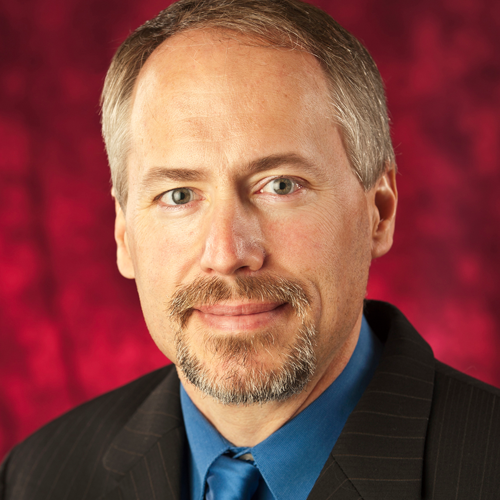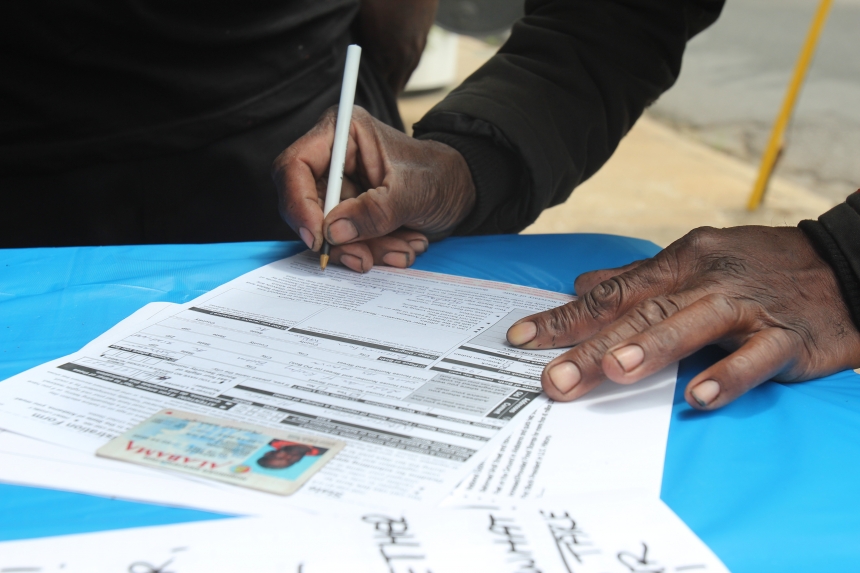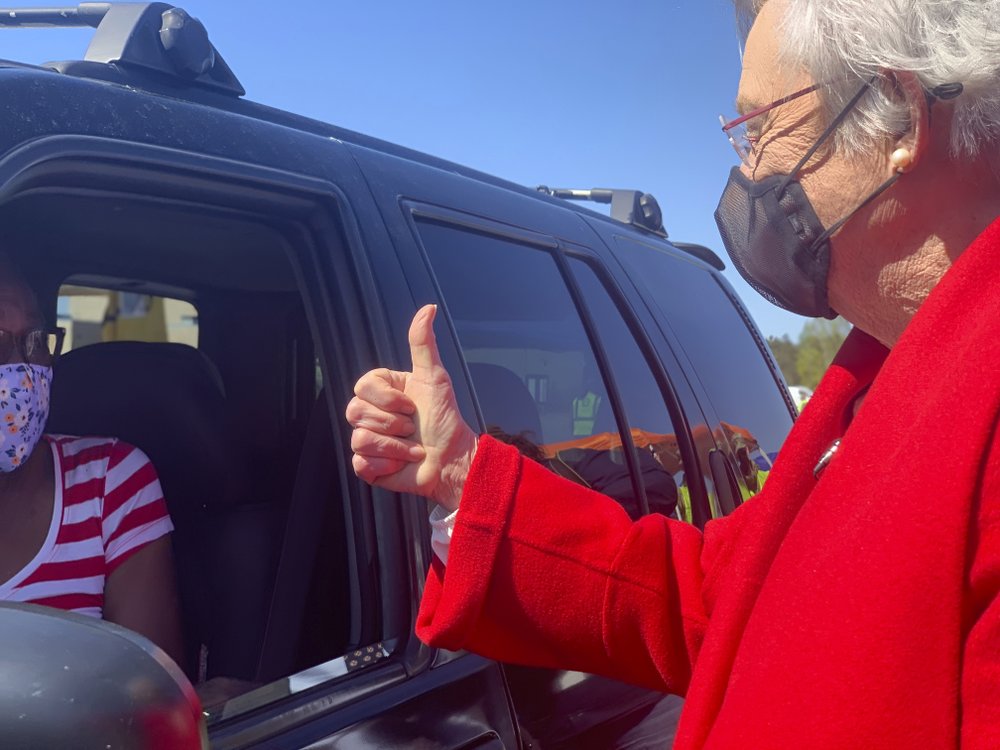Dan Sutter: The freedom to use fossil fuels

The Biden Administration seems intent on renewing the war against fossil fuels to combat global warming. Before going down this path, I hope Americans will consider Alex Epstein’s argument in The Moral Case for Fossil Fuels. A moral argument requires a standard of value and Mr. Epstein’s is human life. As he explains, “I think that our fossil fuel use so far has been a moral choice because it has enabled billions of people to live longer and more fulfilling lives.” Many environmentalists do not share this standard. Mr. Epstein describes their standard as minimizing human impact on the environment. Environmentalist Bill McKibben desires a world where “Human happiness would be of secondary importance.” David Graber hopes, “Until such time as Homo sapiens should decide to rejoin nature, some of us can only hope for the right virus to come along.” Human life and well-being is a holistic standard embracing all people, not just an elite. It means far more than enriching oil and gas companies and demands considering benefits and costs, including pollution. The Industrial Revolution unleashed what economist Deirdre McCloskey calls the Great Enrichment, the enormous increase in standards of living and life expectancy of the past 250 years. Energy has powered the Industrial Revolution’s tractors, steamships, factories, and railroads. Fossil fuels specifically give humans low-cost energy, which is crucial. A tractor allows us to save time planting compared with working by hand. But we are not better off if obtaining fuel takes all the time saved. Fossil fuels also provide the energy to build machines and buildings. Electric power grids and natural gas systems also improve the quality of life. Previously people burned coal, wood, or animal dung in their homes, creating indoor air pollution and smog. Energy allows modern, sanitary water and sewer systems to deliver safe water to and remove dangerous waste from homes. Energy makes our planet more livable. Mr. Epstein notes that nature, “attacks us with bacteria-filled water, excessive heat, lack of rainfall, too much rainfall, powerful storms, decay, disease-carrying insects and animals, and a large assortment of predators.” Technology protects us from nature’s hazards. Hundreds of millions of people in Africa and Asia still lack electricity, clean water, and sanitation. Modern medicine also requires energy. A lack of affordable energy kills 3 to 4 million people each year. Mr. Epstein puts a human face on these statistics. He observed the impact on medicine of unreliable electricity visiting Africa: “A full-term infant was born weighing only 3.5 pounds. In the U.S. the solution would have been obvious and effective: incubation. But without reliable electricity … [t]his seemingly simple solution was not available to this newborn girl, and she perished needlessly.” Pollution harms human life and well-being and should be avoided if possible. Mr. Epstein suggests viewing pollution is as a by-product. We use fossil fuels to power factories and cars and then recognize that this causes air pollution. What do we do? Use human ingenuity to reduce the by-products. Inventing and installing pollution control technology on cars and factories yields prosperity and environmental quality. Global warming represents a similar by-product, although the harm is speculative and occurs primarily in the future. Banning fossil fuels is not the only way to address global warming. Alternatively, we could continue to use fossil fuels to make the world wealthier than today. With continued economic growth, world GDP per capita could easily increase by a factor of four by 2100. Even if global warming reduced world GDP by 25% in 2100 (a rather extreme estimate), the world would still be three times richer than today. The economic freedom and empowerment, including the freedom to use fossil fuels, has produced modern prosperity. Using more of this energy could soon extend this prosperity to billions more. If we care about human life, climate policy must acknowledge the enormous human value of fossil fuels. Daniel Sutter is the Charles G. Koch Professor of Economics with the Manuel H. Johnson Center for Political Economy at Troy University and host of Econversations on TrojanVision. The opinions expressed in this column are the author’s and do not necessarily reflect the views of Troy University.
Voter form with religious oath revised, lawsuit ends

An atheist group asked a judge Wednesday to end its federal lawsuit against the state of Alabama since officials have revised its voter registration forms, which required an oath to God. The Freedom From Religion Foundation and Secretary of State John Merrill ’s office jointly requested that a court dismiss the case, which was filed last year over a required oath for would-be voters that includes the words “so help me God,” court documents show. The updated form still includes the wording, but it also has a box that allows registrants to opt out of the religious portion of the oath “because of a sincerely held belief.” Applicants still must “swear or affirm” to requirements including being a U.S. citizen; being eligible to vote; and not being affiliated with groups that advocate the overthrow of the government. The Wisconsin-based foundation filed suit on behalf of four atheists who argued the oath was a religious requirement that violated their constitutional rights. One of the plaintiffs, Randall Cragun, said he had refused to register to vote in the state because of the oath but could do so now. “It is disappointing that the state prevented me from voting in the 2020 elections, but I am looking forward to participating in the future, and I now have a better appreciation of the value my voice and other individual voices contribute to shaping the state,” Cragun said in a statement. Two more people who sued, spouses Chris Nelson and Heather Coleman, registered to vote using the new form in March, a statement from the foundation said. Merrill, who was sued as the state’s top election official, said both online and paper forms were altered to include the ability to opt out. “While the language ‘so help me God’ has been included on voter registration applications since well before I took office, this issue was just brought to light, and we remain willing to accommodate all voters of Alabama,” he said in a statement. The foundation and the state, which is controlled by Republicans, each agreed to pay their own costs in the lawsuit, according to the dismissal request. Republished with the permission of the Associated Press.
Kay Ivey lifts mask rules, urges common sense

Gov. Kay Ivey said Wednesday that Alabama is shifting to personal responsibility in the fight against COVID-19, keeping her promise to let a statewide face mask order expire Friday. Ivey said she’s issuing a “greatly slimmed down” health order that has few restrictions. It encourages people to keep taking precautions such as voluntarily wearing masks, but no longer includes a statewide mask order. Alabama opened vaccine eligibility to anyone 16 and older two days ago, and state health officials said virus hospitalizations, percentage of positive tests, and daily case numbers are hitting some of the lowest numbers in a year. “We are finally rounding the corner. While we haven’t whipped this deadly disease just yet, it appears that, thank the good Lord we are in the home stretch. Please, please continue to use good common sense and we will see the end of COVID-19 soon,” Ivey said. The Republican governor said she’ll keep wearing a mask around others after Friday, and urged other Alabamians to do the same. She also urged people to respect businesses that require customers to wear masks. The lifting of restrictions comes despite Alabama ranking last in the country for the percentage of people who have received at least one dose of the COVID-19 vaccine, according to data from the Centers for Disease Control and Prevention. Only 25% of Alabama’s population has received at least one dose, far short of the 70% or more that many experts say is necessary to achieve herd immunity, which would protect people who don’t protect themselves. Ivey’s latest order also goes against a request from President Joe Biden for states to maintain mask orders to stave off a fourth surge of the virus. Birmingham and Montgomery will keep mask mandates in place beyond Friday. Mayor Randall Woodfin said Birmingham’s mask ordinance is needed because COVID-19 continues to be a health threat and most people in the city and the state have not been fully vaccinated. “We will continue to make decisions that we believe will save lives. They may not be popular,” Woodfin said Tuesday. The governor’s new health order — illustrated in state materials with a stoplight showing the green light illuminated, reflecting improving conditions and fewest restrictions — keeps restrictions for quarantined individuals and limits on hospital and nursing home visitations, but has few other restrictions. According to researchers at Johns Hopkins, the seven-day rolling average of daily new cases in Alabama did not increase over the past two weeks, going from 438.86 new cases per day on March 22 to 304.86 new cases per day on April 5. “We are not out of woods yet, but we do feel better about where we are now,” State Health Officer Scott Harris said. Republished with the permission of the Associated Press.


